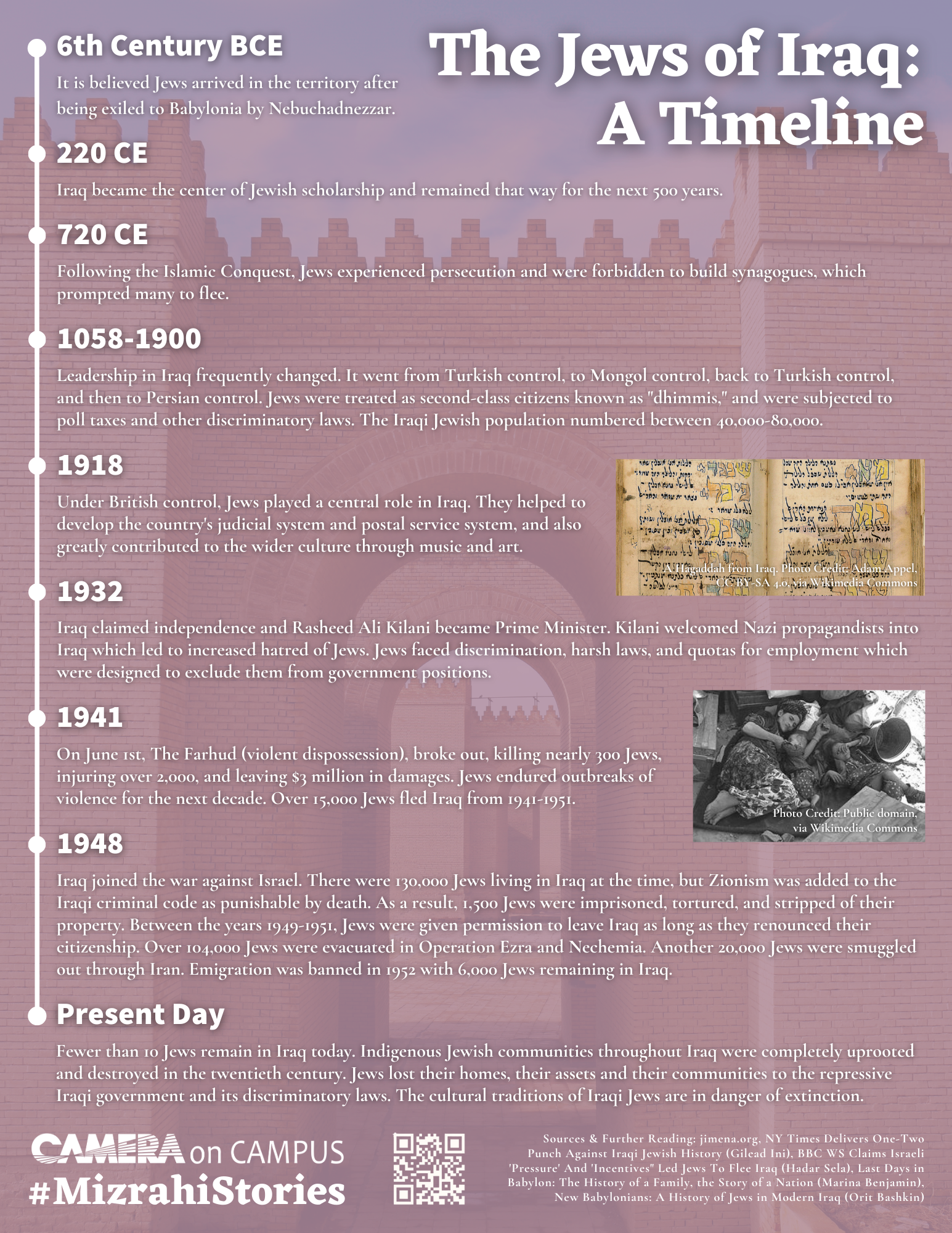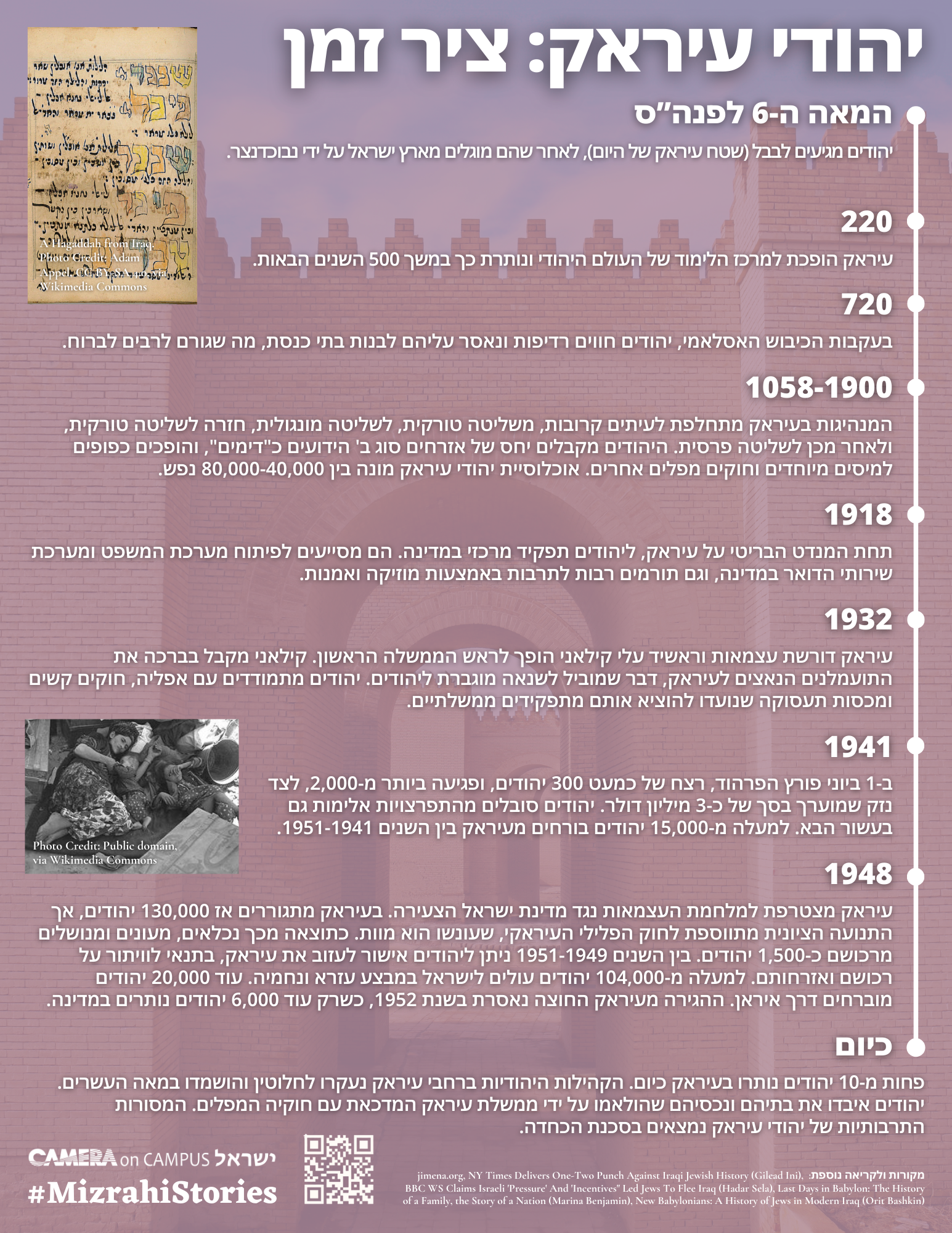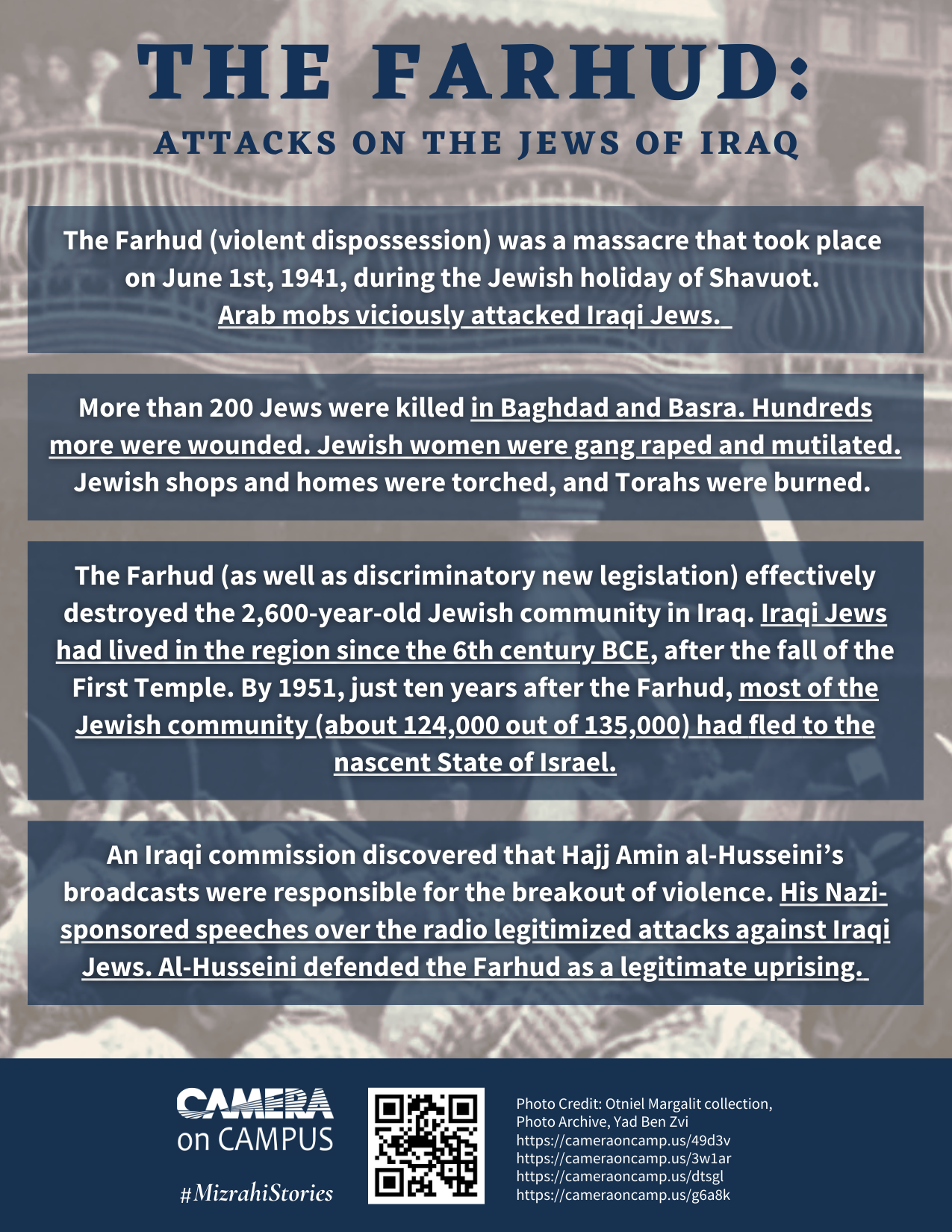Attacking Israeli Food? Your Racism Is Showing
Every Friday, my mother and her 11 brothers and sisters have lunch at my grandmother Hela’s home in Petah Tikva.
There, they find dozens of pots simmering on stoves filled with various dishes that had been prepared with love all day — some even overnight. These Fridays, my grandmother serves her famous kubbah, a Mizrahi dish that takes hours to prepare. Each grandson picks his kubbah’s flavor: okra, pink beets, pumpkin, spicy kubbah and more.
My grandmother always insists on sending my mother home with a bag of homemade hummus, amba (Iraqi spicy mango spread), hard-boiled eggs, fried eggplants and arok, (fried vegetable patties.) On Shabbat morning, we stuff all of these flavors into pita bread, creating a sabich, a traditional Iraqi Jewish sandwich.
My Iraqi mother honors her mother by cooking traditional Iraqi Jewish dishes.
She has this in common with my Tunisian father and his 15 siblings, who also prepare their grandmother’s North African Jewish recipes.
Recently, anti-Israel activists launched a campaign to obliterate my grandmother’s Shabbat lunches. Or so it felt that way.
This attack was in reaction to a post on a website called Hey Alma, which asked people to announce their “unpopular Jewish food opinions.”
“No such thing as Israeli cuisine!” posted one Ashkenazi Jew. “Israeli salad and Israeli couscous aren’t Israeli, they’re Arab foods that have been culturally appropriated,” wrote another Ashkenazi anti-Zionist, receiving more than 1,000 “likes.”
By declaring Israeli cuisine doesn’t exist, these anti-Zionists are stealing Mizrahi recipes and delivering them to regimes that ethnically cleansed us.
Saying Israel has no food or culture is the politically correct way of being racist toward Mizrahim.
After the majority of Mizrahi Jews fled for their lives to escape anti-Semitic regimes throughout the Middle East, they resettled in Israel. We identify our food as Israeli because as members of the Jewish state we can cook it without the fear of being massacred.
Now anti-Zionists proclaim that our cuisine is stolen from the Arab world.
This claim is laughable at its core; the Arab world is an imperial-colonial project designed to erase minorities and their culture in the Middle East and North Africa. The land where my grandmother learned to cook with her grandmother was not Arab — it was once a multi-ethnic state.
But in their quest to strip Israel of its culture, these activists dubbed my grandma’s recipes that she brought from Baghdad as appropriated from the Arab world that butchered her family.
By accusing Mizrahi Jews of cultural appropriation, these extremists essentially deny 53% of Israeli Jews who came to Israel from the Middle East and North Africa, the right to partake in our heritage. It is racism and anti-Semitism for the price of one.
Saying Israel has no food or culture is the politically correct way of being racist toward Mizrahim. These bigots aren’t just stealing our culture, they are claiming we have none.
It’s not the first time Hey Alma contributed, deliberately or not, to this anti-Mizrahi erasure. The website frequently posts about Ashkenazi food and culture but seldom posts about Mizrahim, our food, or our heritage.
The goal of this campaign? Dehumanization. No nation lacks cuisine. Deprive Jews and Israelis of a culture, and you deprive us of our humanity.
Perhaps that is the root of the divide between some American Jews and Israelis: apathy via dehumanization.
American Jews become anti-Zionists because they struggle to empathize with Israelis. They wish we ate bagels and lox instead of hummus and sabich, listened to Barbra Streisand and not Omer Adam. They are alienated by how Israel, unlike most American Jewish spaces, adopts Mizrahi culture. They wish our national language was Yiddish and not Hebrew and Arabic, that we cared more about their interpretation of tikkun olam instead of our survival.
Along with dishes from all global Jewry, Mizrahi cuisine is a part of the emerging Israeli cuisine, and that’s a hard fact for anti-Zionists to swallow.
The man who flew 120,000 Iraqi Jews to Israel | Lyn Julius | The Blogs
Jews with roots in Iraq are today the third largest community in Israel – after the Soviet and the Moroccan. Did you ever wonder how they got there?
The mass aliya of some 120,000 Iraqi Jews between 1950 and 1951 is attributable largely to the efforts of one man — Shlomo Hillel, who died on 8 February 2021, aged 97.
The Jews of Iraq, the oldest diaspora in the world, had been through troubled times in the 1930s and 40s. Hundreds were murdered in the Farhud massacre of 1941, and the Arab war against the fledgling state of Israel had led to persecution, extortion and the criminalisation of Zionism. In defiance of a travel ban, 12,000 Iraqi Jews were smuggled over the porous border into Iran. Working with a Jewish-born priest, Alexander Glasberg, to get the Jews French visas for Israel, Shlomo bribed Iranian policemen to look the other way. Posing as a member of the crew, Shlomo Hillel arranged the first test flights, piloted by American freelance pilots, to smuggle 100 Jews from Iraq to Israel, Operation Michaelberg.
Before Israel had an official army, Shlomo led the construction and operation of a secret bullet factory, under the noses of the British. The factory, known as the Ayalon Institute, was built beneath the laundry room of a kibbutz in Rehovot.
When the Iraqi government briefly lifted the ban on immigration in 1950 on condition that the Jews relinquished their citizenship, Baghdad-born Shlomo returned to Iraq as a Mossad agent to facilitate their airlift, dubbed Operation Ezra and Nehemiah. Aged 23, he posed as Richard Armstrong, the British representative of Near Eastern Airlines, to negotiate with the Iraqi government. Throughout the meeting he shifted in his seat, fearing he might be recognised by his cousin, the leader of the Jewish community. (He wasn’t). Shlomo Hillel published his story in Operation Babylon.
Shlomo was the youngest of 11 children of an Iraqi-Jewish merchant importing goods from India, Japan and Manchester. Iraqi Jews were not generally Zionist, but until the rise of pro-Nazi feeling in the 1930s, there was a small Zionist movement, Achi-ever, where Shlomo and his brothers learned Hebrew. In 1934, aged 11 on a family visit to Palestine, Shlomo insisted on remaining with two elder brothers, attending the prestigious Herzliya Gymnasium in Tel Aviv. Having lived through the massacre of Assyrian Christians in Iraq in 1933, Shlomo’s father had a sense of foreboding: ‘If they do this to Iraqi Christians, what will they do to Jews? He moved the rest of his family to Israel.
A founder of kibbutz Ma’agan Michael, Shlomo Hillel married Temima, who came as a refugee from Europe on the Patria. He reluctantly embarked on a political career, serving in seven Knessets, becoming a Minister and Knesset speaker. He also served as Israeli ambassador to several African countries, and was awarded the Israel prize in 1988. But he was always modest about his achievements.
Later Shlomo Hillel was involved in the mass emigration of Jews from Ethiopia. The wheel came full circle when his son Ari fell in love and married an Ethiopian girl. When asked what he thought of the match, Shlomo said he was delighted. The Jewish people was completing the ‘Ingathering of the Exiles’.
.png?u=https%3A%2F%2Fimages.ctfassets.net%2F02dfoawcqsio%2F3zfKS0pBrNNiWOCIptl8H3%2F7868066b08eef668703a560233ecb2b9%2FFront__2_.png)
.png?u=https%3A%2F%2Fimages.ctfassets.net%2F02dfoawcqsio%2F1w6NaQzvrXstsbwqkskTa0%2F68831f14f6751bfbbb331a067b714cec%2FBack__2_.png)




